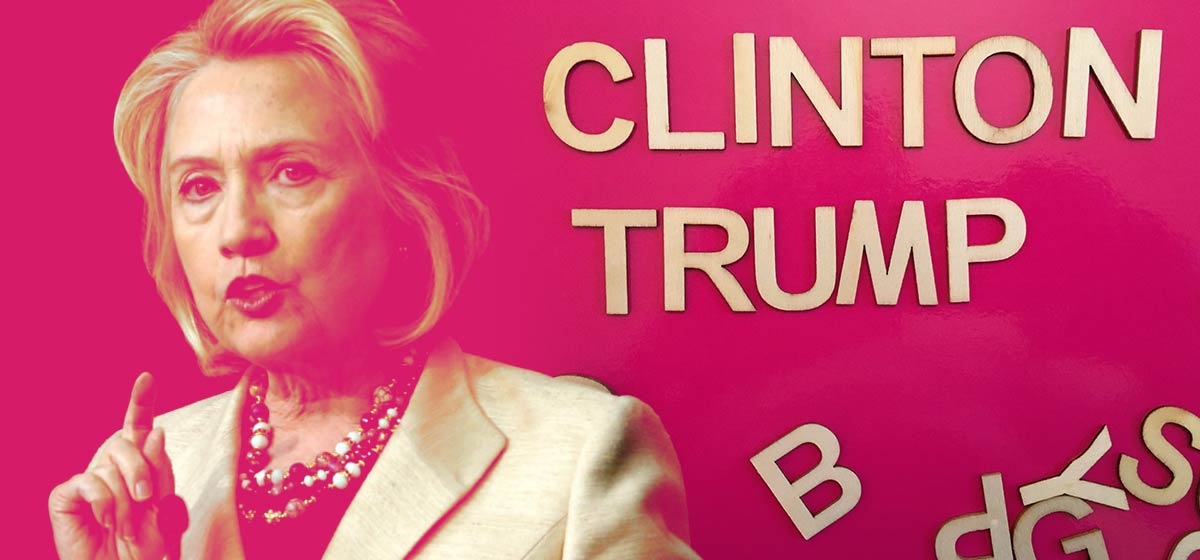Democracy, Populism, and the Tyranny of the Experts, Part VII

Viewed through the lens of “the tyranny of the experts,” it’s easy to see that in the last election Hillary Clinton was the candidate of the experts, while Donald Trump was the candidate of people who were tired of being tyrannized by them.
Clinton is an expert herself—she’s a lawyer who practiced with The Rose Law Firm—and beyond that, over the course of her three decades in public life she came to consider herself an expert in many other areas, including healthcare (Hillarycare) and foreign policy (she was Secretary of State) among others.
Trump, by contrast, is a businessman who, by the definition in this series of posts, isn’t an expert in anything and is in fact suspicious of and annoyed by people who are experts.
If we were so inclined, we could spend an entertaining hour or so comparing the Clinton and Trump campaign websites through the lens of “expertness.” Clinton’s site is a policy wonk’s nirvana, with her expert opinion about more than 40 policy issues outlined in harrowing detail. Trump’s site, by contrast, mentions only seven policy issues, and two of those relate to immigration. Clinton tells us precisely what to do to improve the world in every particular, while Trump tells us, essentially, to use our imagination.
To understand the differing experiences of people who voted for Clinton and people who voted for Trump, we will fall back on another trusty thought experiment, as follows.
Patient A is a 55-year-old male, a high school graduate who makes his living as a forklift operator. He has just completed a routine visit with his primary care physician (PCP) and has learned, to his horror, that he is “pre-diabetic.” Patient A’s A1C level is borderline and his doctor tells him that he is in danger of developing full-blown diabetes. Patient A is told to make major changes in his lifestyle and to begin taking a medication called metformin.
Patient A is deeply unhappy about all this. He certainly doesn’t want to become diabetic, but he is also sick to death of being told what to do by experts in an ever-burgeoning number of fields. He is already taking five medications every day and he suspects that they—and interactions among them—are responsible for his declining quality of life. Does he really want to add a sixth med to his daily regime?
But if he refuses to take metformin, what will happen? Will his PCP refuse to keep him as a patient? Will he get diabetes? What grounds does he have for not taking this expert’s advice, other than that he’s hacked off about experts in general and medical experts in particular? Does that make any sense?
Patient A leaves his doctor’s office with a prescription for metformin, but whether he will fill it, we don’t know. If he fills, will he take it? If he takes it, will he just stop taking it? Time will tell, but in the meantime Patient A is deeply distressed. He feels helpless and persecuted by people who happen to know more than he does but who have no interest in his dignity as a person. He is simply expected to do as he is told.
Patient B, meanwhile, is a 55-year-old female, a college graduate who makes her living as a mid-level executive at a large nonprofit organization. She has just completed a routine visit with her PCP and has learned, to her horror, that she is “pre-diabetic.” Patient B’s A1C level is borderline and her doctor tells her that she is in danger of developing full-blown diabetes. Patient A is told to make major changes in her lifestyle and to begin taking a medication called metformin.
Patient B is deeply unhappy about all this. She certainly doesn’t want to become diabetic, but she is also worried about taking another medication because she is already taking five medications every day and she suspects that they—and interactions among them—are responsible for her declining quality of life. Does she really want to add a sixth med to her daily regime?
Fortunately, Patient B is hardly helpless in her doctor’s hands. She’s an educated person who subscribes to the WebMD newsletter. She knows what A1C levels are and she knows at least a little about pre-diabetes. She knows, for example, that healthcare policymakers in America keep pushing the “alarming” level of A1C down, while most other countries don’t consider “pre-diabetes” to be a disease or even to be a useful term. She recognizes that some people with borderline A1C levels will proceed on to full diabetes, but she also knows that many people won’t. Which group is she in?
Patient B respects her doctor but she is hardly intimidated by him. She is his social and intellectual equal, and her own little brother is a physician (and she’ll get a second opinion from him). She leaves her doctor’s office with a prescription for metformin, but whether she will fill it, we don’t know. If she fills, will she take it? If she takes it, will she just stop taking it? Time will tell, but in the meantime Patient B, while not a medical expert, is comfortable that she will ultimately make an intelligent decision.
The odds are very good that people like Patient B voted for Hillary Clinton, while people like Patient A voted for Donald Trump. Probably none of those people went to the polls thinking, “I’m all for experts and am happy to take their advice 24/7 so I’m voting for Hillary,” just as none of them went to the polls thinking “I’m sick to death of being told what to do by a bunch of experts in this and that so I’m voting for The Donald, who will rid the world of these pests.”
It’s only Your Humble Blogger who has put his finger on the real reason Clinton lost: people are fed up with the tyranny of the experts, of experts bedeviling them every hour of their lives. Ah, you are thinking, but Clinton actually won the popular vote, suggesting that annoyance with the tyranny of the experts can’t be that widespread. Why worry? Wrong, as we’ll see next Friday.
Next up: DP&TE, Part VIII





